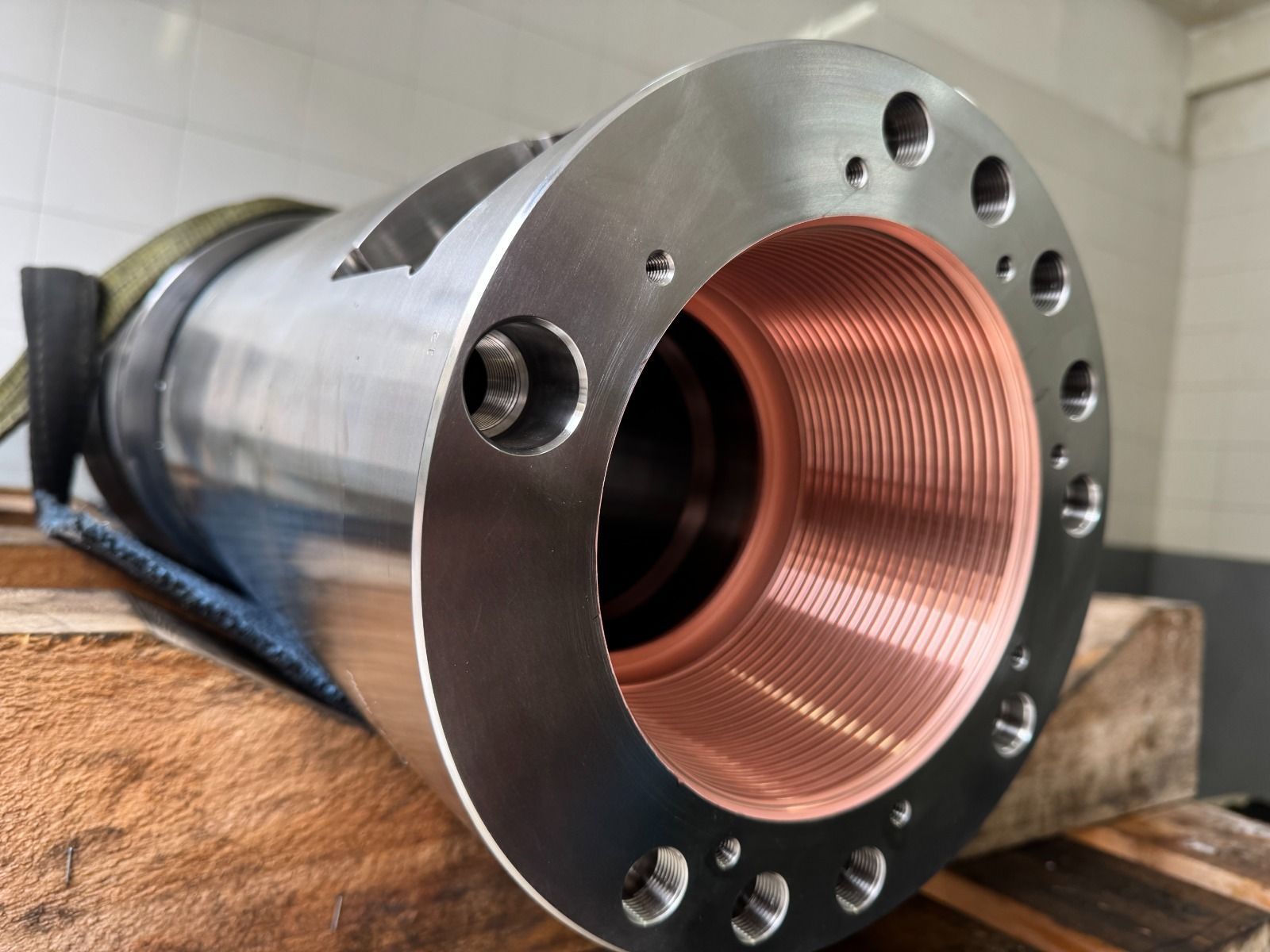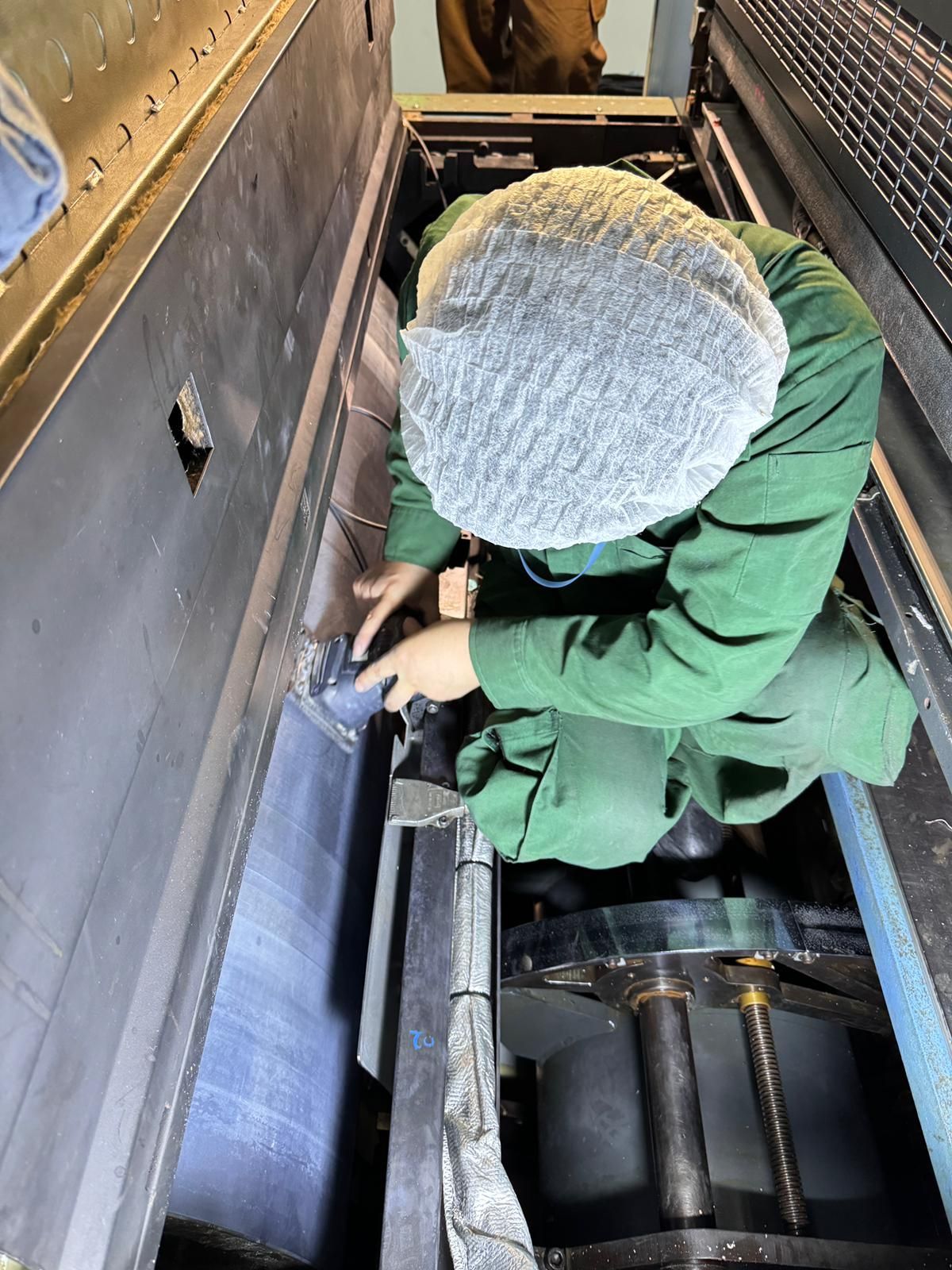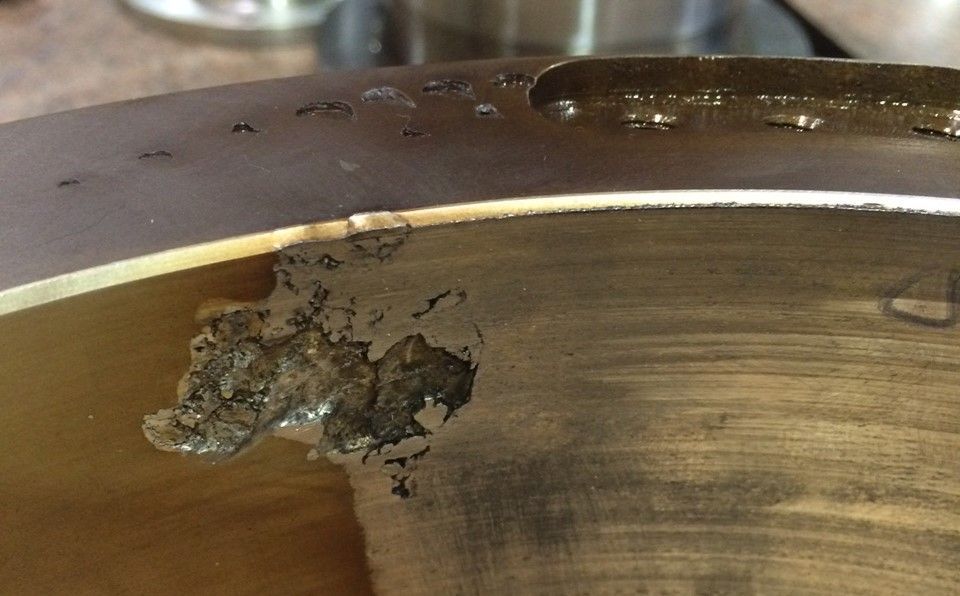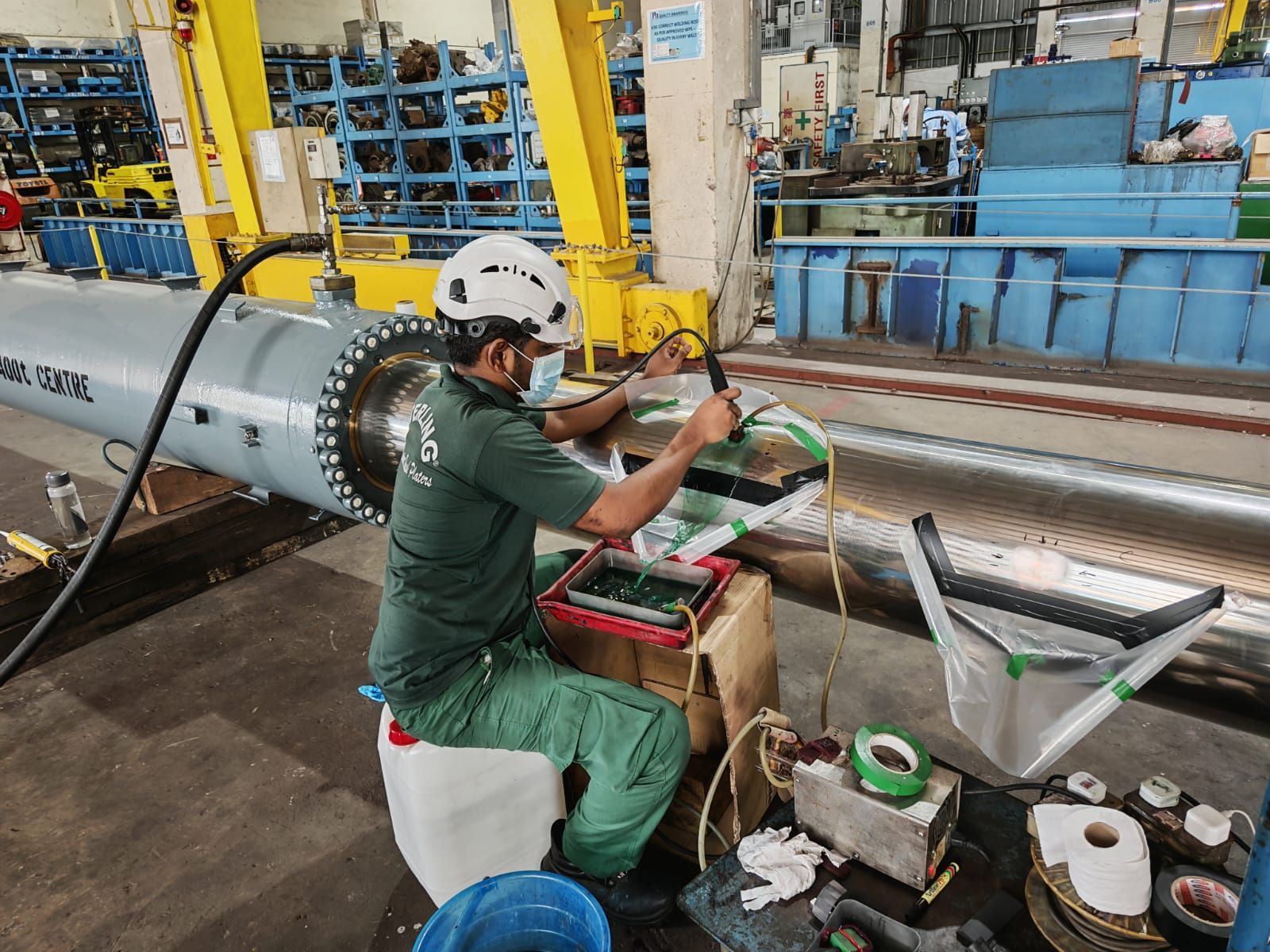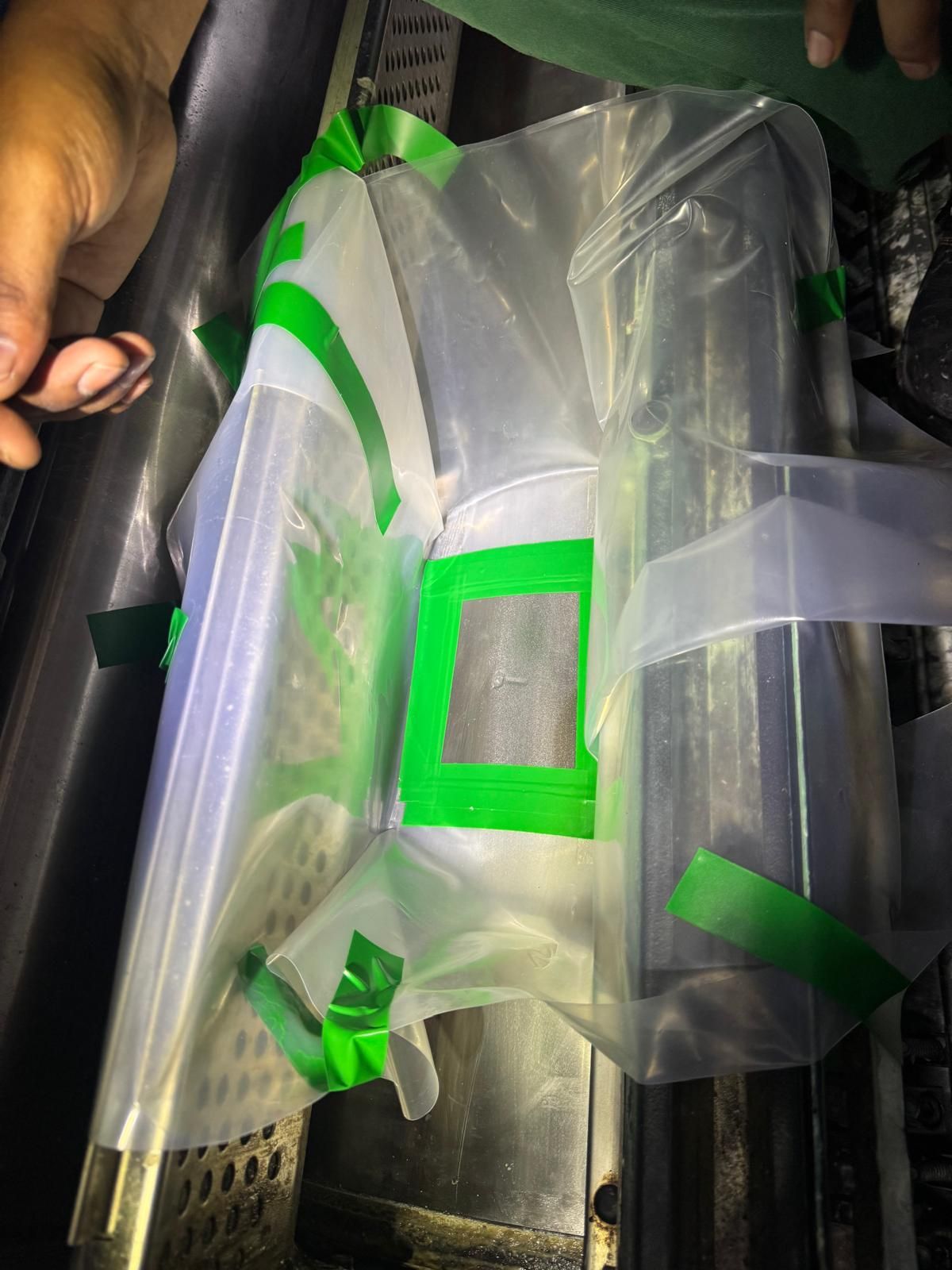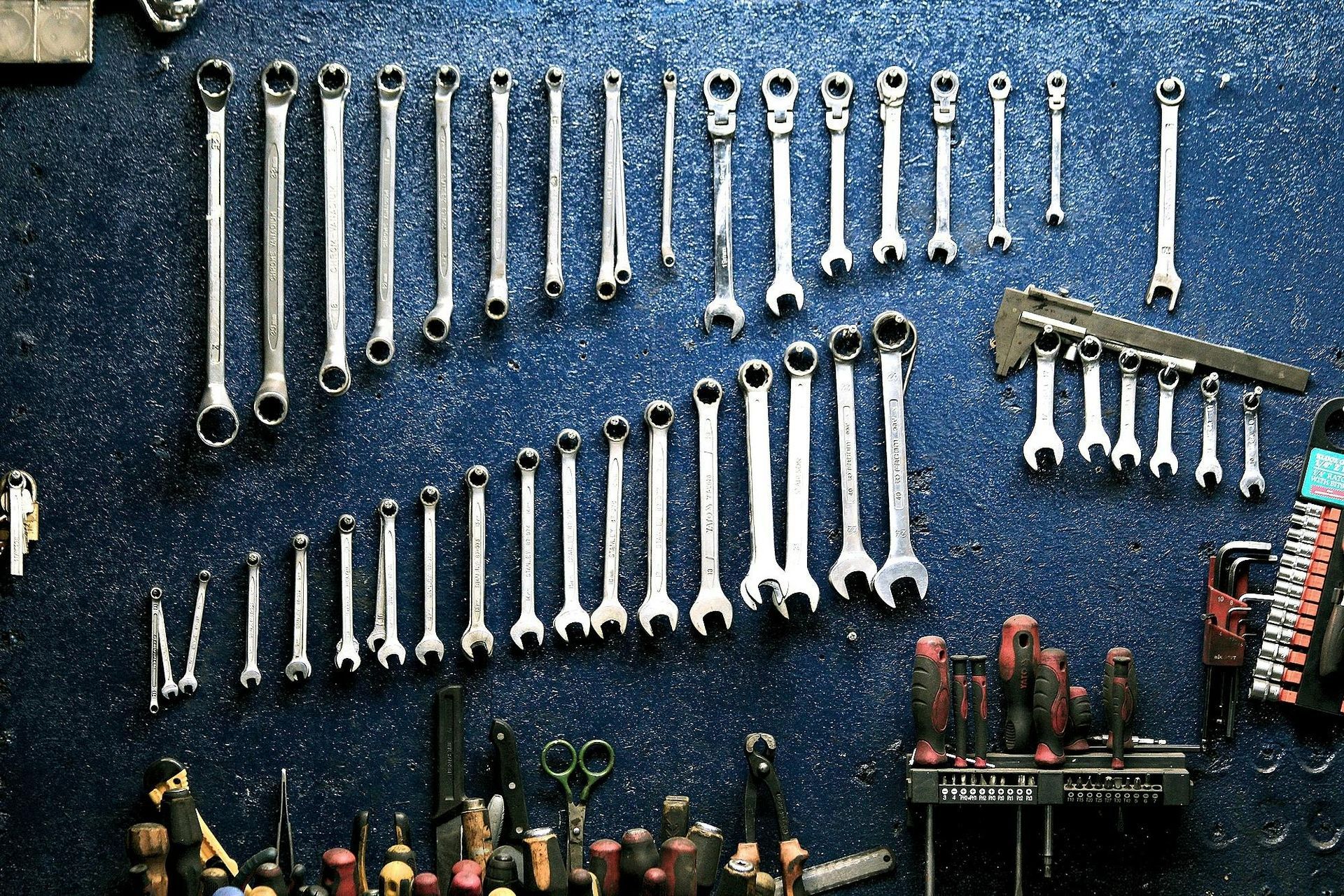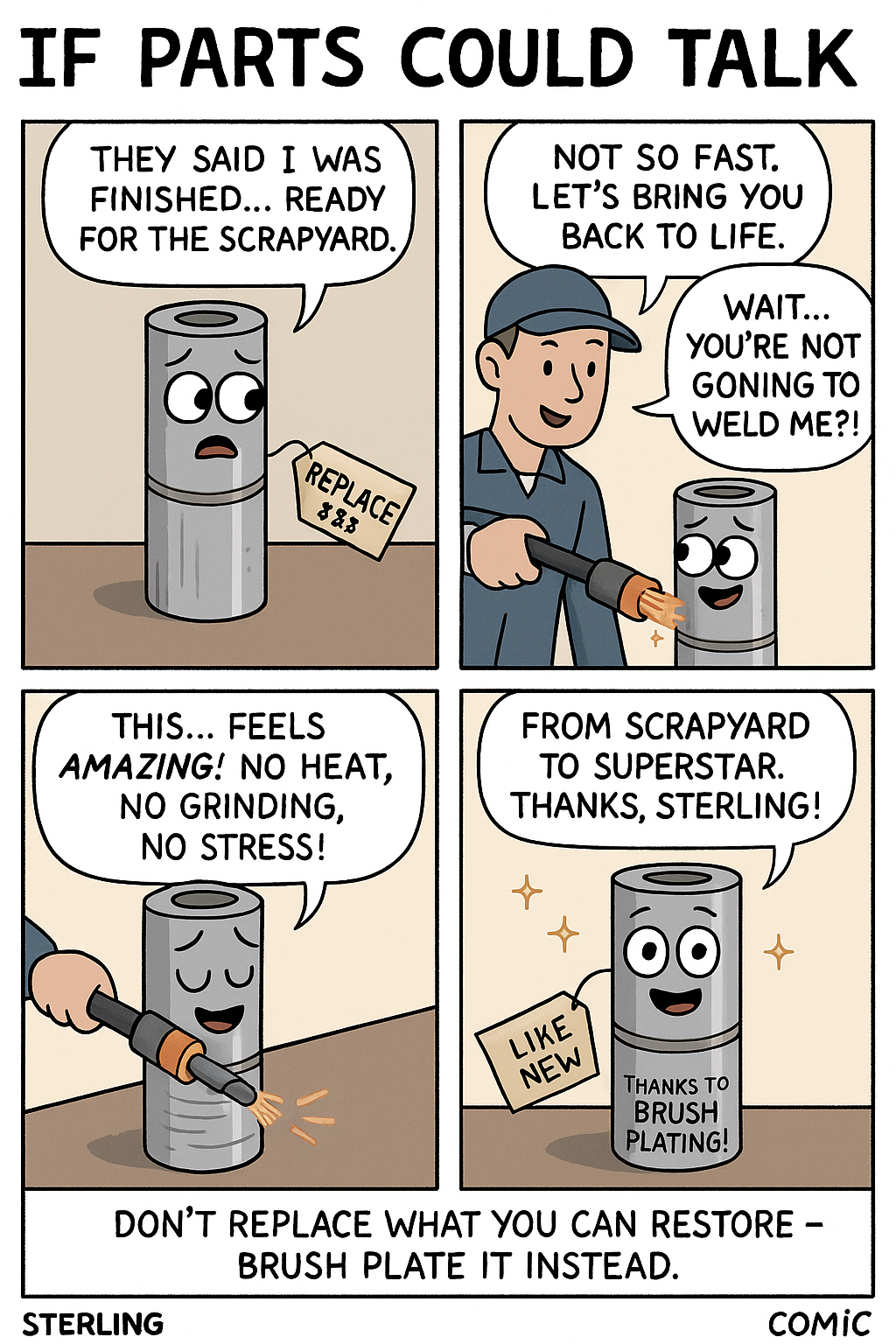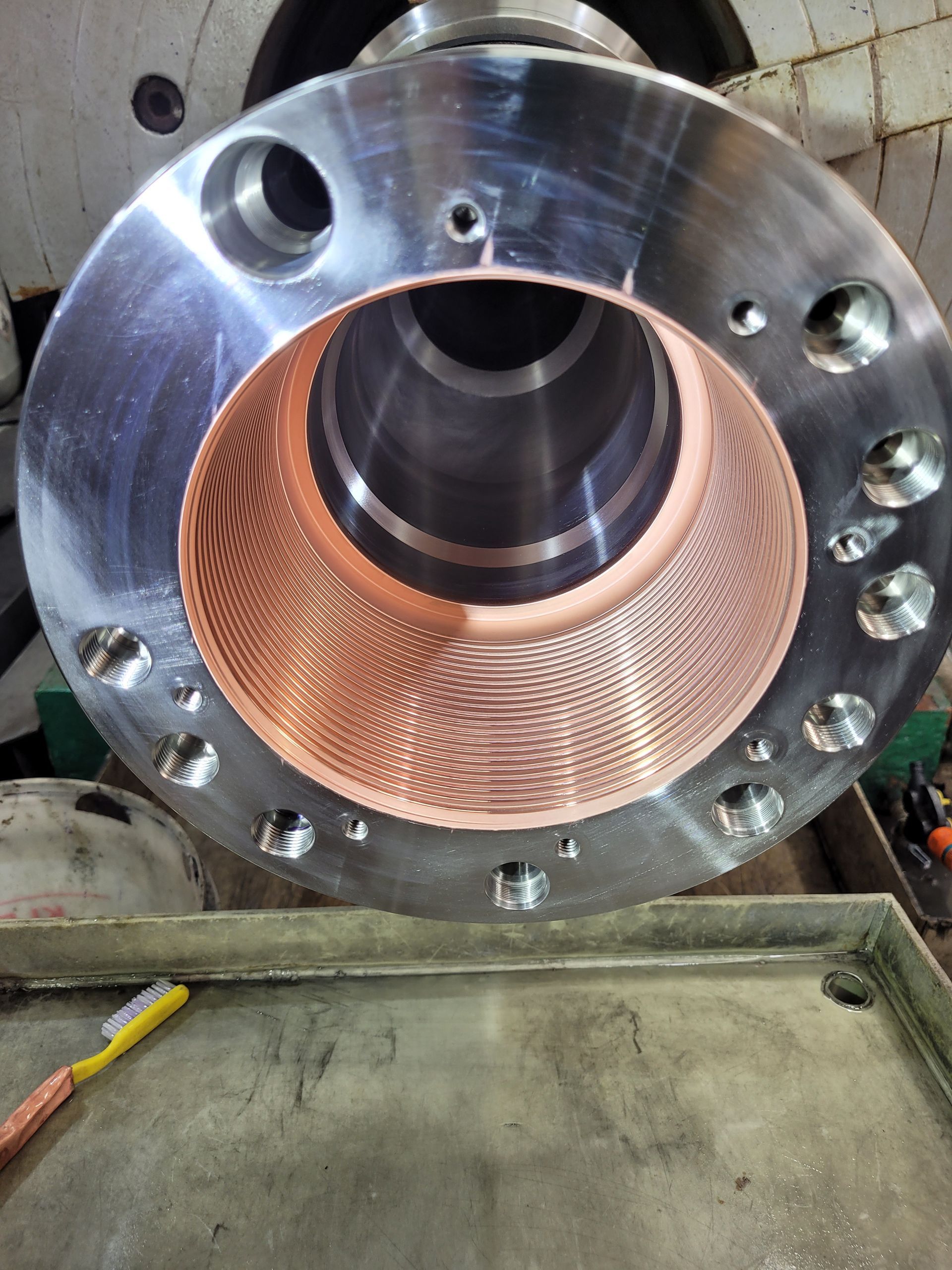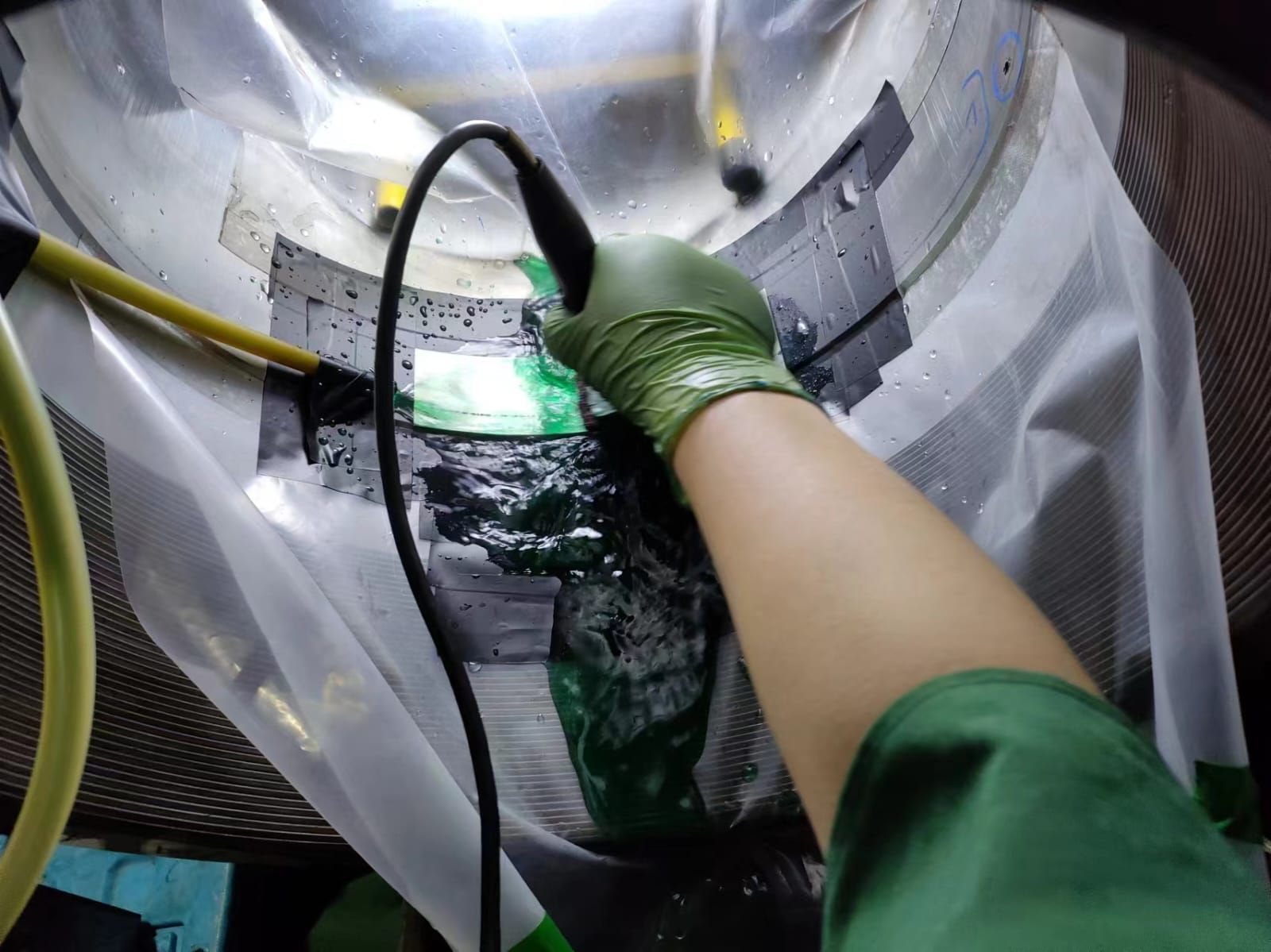Top 5 Mistakes Companies Make When Evaluating Plating & Repair Services
...... And How to Avoid Them
When machinery or critical components wear down, the first instinct for many companies is to find a quick repair solution or the lowest-priced vendor. But when it comes to
plating and repair services, a rushed or misinformed decision can lead to serious consequences — early coating failure, costly rework, longer downtime, and even damage to expensive equipment.
At
Sterling Impreglon Asia, with over 35 years of experience in Brush Plating and industrial repairs, we’ve seen countless cases where customers came to us after a previous repair had failed.
Here are the
Top 5 Mistakes companies often make — and how you can avoid them.
❌ 1. Choosing Based on Price Alone
The biggest mistake is assuming all plating services are the same.
Plating quality depends on surface preparation, process control, and technician skill. A low-cost provider may cut corners on cleaning, activation, or deposit thickness — resulting in poor adhesion and premature failure.
💡
How to avoid it:
Evaluate providers based on
technical competence, experience, and proven track record rather than price. Ask about their process qualifications, test methods (such as adhesion or pressure tests), and customer references.
❌ 2. Ignoring Adhesion and Bond Strength Performance
Not all coatings adhere equally. Many conventional methods rely on mechanical bonding, which can flake or peel under stress. For example, when plating hydraulic shafts or oil tool connections, poor adhesion can lead to costly downtime and leakage.
💡
How to avoid it:
Choose processes that deliver
true metallurgical bonding — like Brush Plating — where the deposit fuses with the base metal at the atomic level. Confirm that the provider performs
adhesion or water-jet tests to verify bond strength and coating integrity.
❌ 3. Overlooking Surface Preparation and Cleaning
Even the best plating chemistry cannot compensate for poor preparation. Any trace of oil, oxide, or contamination can prevent proper bonding. This is often the hidden cause of coating failures.
💡
How to avoid it:
Ask your vendor to explain their
surface preparation procedure — including degreasing, activation, and masking. A professional provider should have strict process controls and visual inspection steps before plating begins.
❌ 4. Not Considering On-Site Repair Options
Many companies automatically send damaged components to external workshops, losing valuable days in disassembly, packing, and re-installation. In many cases, the part could have been repaired directly on-site — saving time, transport cost, and downtime.
💡
How to avoid it:
Find out if the service provider offers
portable Brush Plating systems or
on-site repair services. For large or heavy components such as hydraulic shafts, bedplates, or engine blocks, on-site repair is almost always faster and more economical.
❌ 5. Neglecting Certification and Industry Recognition
In industries like oil & gas, marine, and heavy equipment, using an unqualified or uncertified process can cause warranty issues or rejections from OEMs. Many major manufacturers require suppliers to follow strict specifications and proven plating standards.
💡 How to avoid it:
Always verify whether the process or company is qualified, certified, or recognized by major OEMs or licensors. For example, Sterling Impreglon Asia’s Brush Plating process is approved by major OCTG manufacturers worldwide for anti-galling applications — a key assurance of reliability and global acceptance.
In Summary: Choose Experience, Not Experiments
When selecting a plating or repair partner, focus on long-term value — not just short-term savings.
A qualified, experienced company will help you:
- Extend equipment life
- Minimize downtime
- Ensure reliable coating adhesion
- Deliver consistent performance under demanding conditions
At
Sterling Impreglon Asia, we combine over
three decades of expertise with proprietary Brush Plating technology that has been trusted globally for both
industrial repairs and
anti-galling applications.



